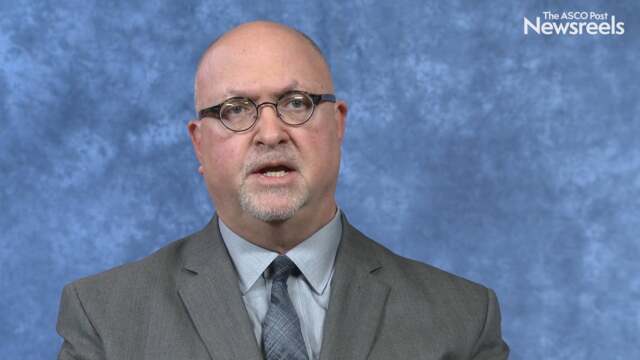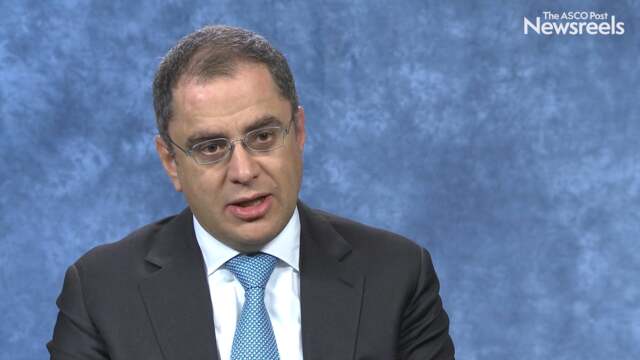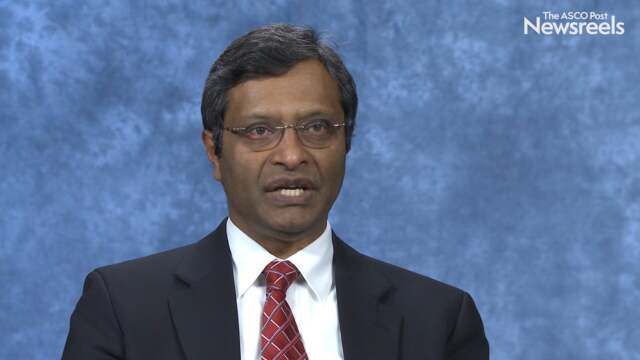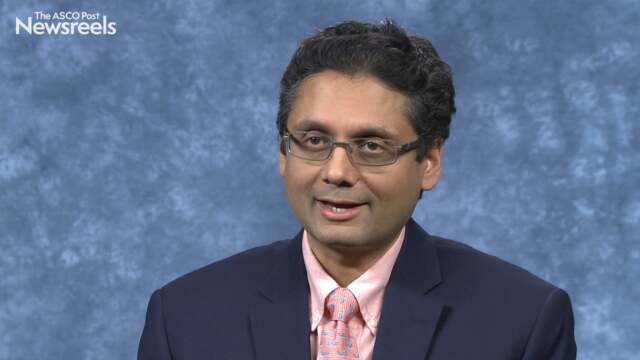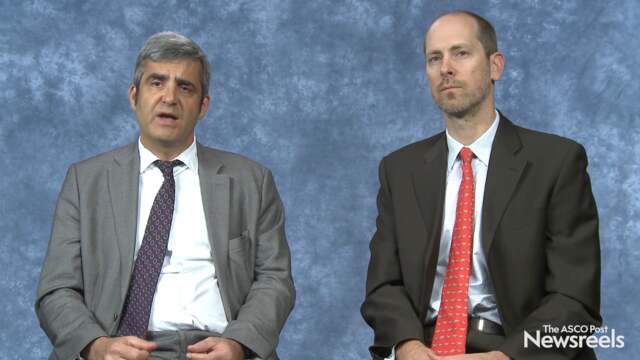Steven D. Leach, MD, on Pancreatic Cancer: Keynote Lecture
2018 Gastrointestinal Cancers Symposium
Steven D. Leach, MD, of Dartmouth University’s Norris Cotton Cancer Center, discusses the personalized approach that GI cancers will require to make rational use of immunotherapy—including a subset of pancreatic cancers, which appear to be highly immunogenic and are associated with long-term survival.
David H. Ilson, MD, PhD, of Memorial Sloan Kettering Cancer Center, discusses the merits of preoperative chemotherapy vs chemoradiotherapy, the role of targeted agents, recent results from genomic profiling, and whether PET scans can guide neoadjuvant treatment.
Ghassan K. Abou-Alfa, MD, of Memorial Sloan Kettering Cancer Center, discusses phase III study findings on cabozantinib vs placebo in patients with advanced hepatocellular carcinoma who have received prior treatment with sorafenib (Abstract 207).
Ramesh K. Ramanathan, MD, of the Mayo Clinic, discusses early-phase study findings on mFOLFIRINOX (mFFOX) plus pegylated recombinant human hyaluronidase vs mFFOX alone in patients with a good performance status (Abstract 208).
Manish A. Shah, MD, of Weill Cornell Medicine, discusses phase III study findings on cisplatin plus capecitabine or fluorouracil with or without ramucirumab as first-line therapy in patients with metastatic gastric or gastroesophageal junction adenocarcinoma (Abstract 5).
Thierry André, MD, of Hôpital Saint-Antoine, and Michael J. Overman, MD, of The University of Texas MD Anderson Cancer Center, discuss findings from their respective CheckMate-142 studies on nivolumab and ipilimumab in patients with DNA mismatch repair–deficient/microsatellite instability–high metastatic colorectal cancer (Abstracts 553, 554).
